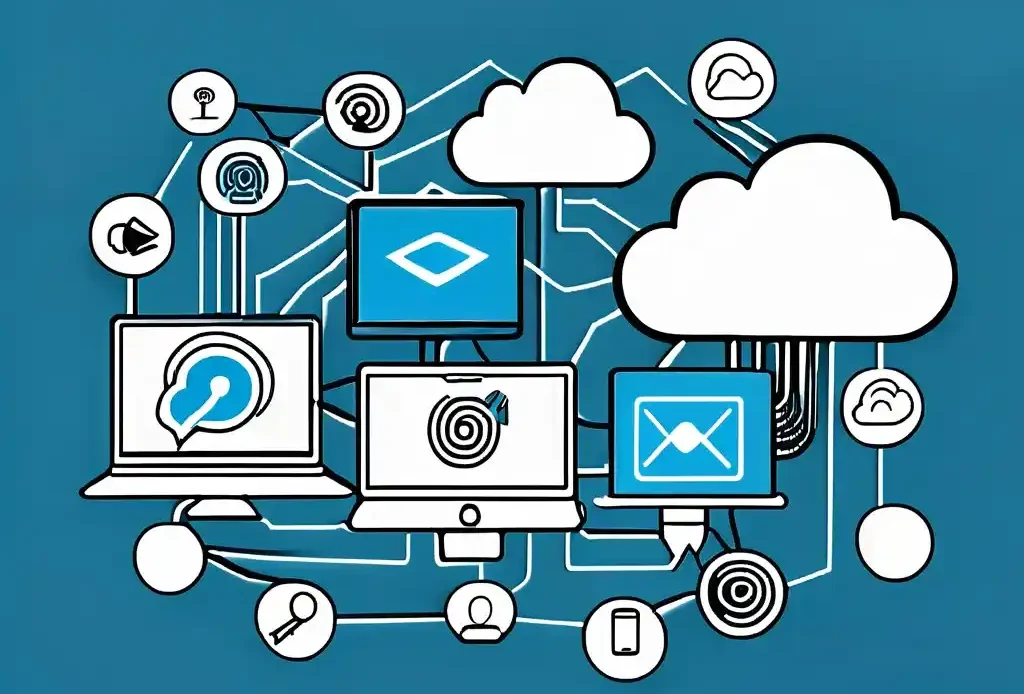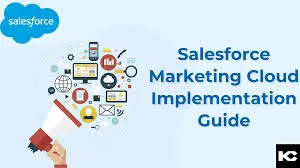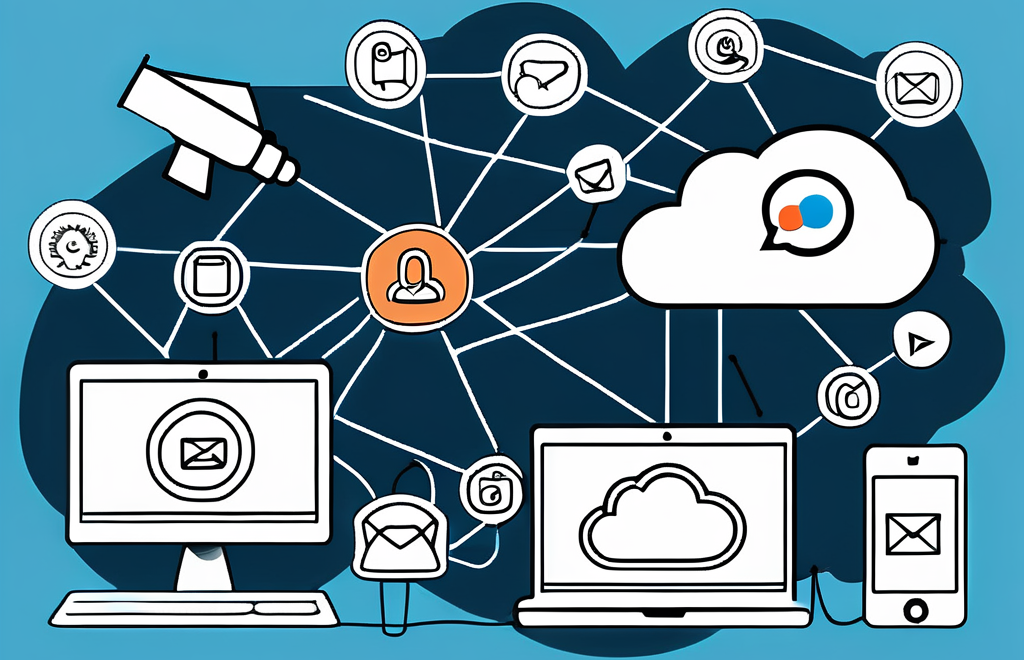Salesforce Marketing Cloud Implementation is a powerful platform that enables businesses to create and deliver personalized marketing experiences to their customers across different channels. In this comprehensive guide, we will walk you through everything you need to know about implementing Salesforce Marketing Cloud to maximize its potential for your organization.
Understanding Salesforce Marketing Cloud
Before diving into the implementation process, it’s important to have a clear understanding of what Salesforce Marketing Cloud is and how it can benefit your business. Salesforce Marketing Cloud is a customer relationship management (CRM) platform that allows you to manage and automate your marketing campaigns, track customer interactions, and deliver personalized content at scale. With its robust set of features and tools, Salesforce Marketing Cloud empowers marketers to create highly targeted, data-driven campaigns that drive customer engagement and generate measurable results.

Key Features of Salesforce Marketing Cloud
Salesforce Marketing Cloud offers a wide range of features that cater to every aspect of the marketing process. Some of its key features include:
- Email Studio: This powerful tool allows you to create, send, and track personalized email campaigns, ensuring that your messages reach the right audience at the right time. With advanced segmentation capabilities, you can target specific customer segments with tailored content, increasing the effectiveness of your email marketing efforts.
- Social Studio: With Social Studio, you can monitor social media conversations, engage with customers, and measure the impact of your social media campaigns. By listening to what your customers are saying on social media, you can gain valuable insights and respond in a timely manner, strengthening your brand’s presence and reputation.
- Mobile Studio: This feature enables you to create and send personalized mobile messages, such as SMS and push notifications, to engage with customers on their mobile devices. With the increasing use of mobile devices, reaching customers on their preferred channel is crucial for driving engagement and conversions.
- Journey Builder: Journey Builder allows you to create customer journeys that span multiple channels, enabling you to deliver personalized experiences throughout the entire customer lifecycle. By mapping out the customer journey and automating touchpoints, you can create seamless experiences that guide customers towards conversion and loyalty.
Now that we’ve explored the key features of Salesforce Marketing Cloud, let’s delve into the benefits it can bring to your organization:
Benefits of Using Salesforce Marketing Cloud
Implementing Salesforce Marketing Cloud can bring numerous benefits to your organization. It allows you to:
- Gain a Single Customer View: Salesforce Marketing Cloud consolidates customer data from various sources, giving you a holistic view of each customer. This enables you to create highly targeted campaigns based on customer preferences and behaviors. By understanding your customers on a deeper level, you can deliver personalized experiences that resonate with them.
- Drive Personalized Experiences: With Salesforce Marketing Cloud, you can deliver personalized content and experiences across multiple channels, ensuring that each customer receives relevant messages that resonate with them. Whether it’s through email, social media, or mobile, you can tailor your communications to meet the unique needs and preferences of each individual.
- Increase Marketing ROI: By leveraging the advanced analytics and reporting capabilities of Salesforce Marketing Cloud, you can measure the effectiveness of your marketing campaigns and optimize them for better results. With real-time insights into campaign performance, you can make data-driven decisions and allocate your resources more effectively, ultimately maximizing your return on investment.
- Enhance Customer Engagement: With the ability to deliver timely and relevant messages, Salesforce Marketing Cloud helps you build stronger relationships with your customers, leading to increased customer satisfaction and loyalty. By understanding their needs and preferences, you can engage with them in meaningful ways, fostering long-term relationships that drive repeat business and advocacy.
As you can see, Salesforce Marketing Cloud is a powerful platform that can revolutionize your marketing efforts. By leveraging its features and benefits, you can create personalized experiences, drive customer engagement, and achieve measurable results. So, are you ready to take your marketing to the next level with Salesforce Marketing Cloud?
Preparing for Salesforce Marketing Cloud Implementation
Before embarking on your Salesforce Marketing Cloud implementation journey, it’s crucial to lay the groundwork to ensure a smooth and successful implementation process.
Identifying Your Business Needs
The first step in preparing for Salesforce Marketing Cloud implementation is to clearly define your business needs and goals. Identify the specific marketing challenges you are looking to address and determine how Salesforce Marketing Cloud can help you overcome them. This will help you set realistic expectations and ensure that the implementation aligns with your organization’s objectives.
Setting Up Your Implementation Team
Building the right implementation team is essential for a successful Salesforce Marketing Cloud implementation. Identify key stakeholders from different departments, such as marketing, IT, and customer service, who will be involved in the implementation process. Assign roles and responsibilities to team members based on their expertise and ensure clear communication channels are established.
Step-by-Step Salesforce Marketing Cloud Implementation Process
Now that you have laid the foundation, let’s explore the step-by-step process of implementing Salesforce Marketing Cloud.
Initial Setup and Configuration
The first phase of the implementation process involves setting up and configuring Salesforce Marketing Cloud to meet your specific requirements. This includes tasks such as creating user accounts, defining data structure, configuring data extensions, and setting up permissions and security settings. It’s crucial to ensure that all the necessary integrations with other systems, such as your CRM, are properly configured during this phase.
Data Integration and Management
Successful implementation of Salesforce Marketing Cloud relies heavily on seamless data integration and management. You need to ensure that your customer data is accurate, up-to-date, and easily accessible within Salesforce Marketing Cloud. This may involve data cleansing, data mapping, and establishing automated processes for data synchronization. Implementing data governance practices will help maintain data quality and integrity over time.
Building Customer Journeys
With Salesforce Marketing Cloud’s Journey Builder, you can create customer journeys that guide individuals through a series of personalized touchpoints. Identify the different stages of your customer journey and map out the interactions and messages that will drive customer engagement at each stage. Leverage Salesforce Marketing Cloud’s segmentation and automation capabilities to deliver relevant messages to the right audience at the right time.
Best Practices for Salesforce Marketing Cloud Implementation
To ensure a successful implementation and maximize the value of Salesforce Marketing Cloud, it’s essential to follow best practices throughout the process.Salesforce Marketing Cloud is a powerful platform that enables businesses to create and deliver personalized marketing experiences to their customers across different channels. In this comprehensive guide, we will walk you through everything you need to know about implementing Salesforce Marketing Cloud to maximize its potential for your organization.

Ensuring Data Quality
Data quality is foundational to the success of your marketing campaigns. Implement data validation rules, deduplication processes, and regular data audits to maintain accurate and reliable customer data within Salesforce Marketing Cloud.
Leveraging Automation Features
Take full advantage of Salesforce Marketing Cloud’s automation features to streamline your marketing processes and improve efficiency. Automate recurring tasks, such as campaign deployments and reporting, to save time and resources.
Regular Monitoring and Optimization
Implement a system for monitoring the performance of your marketing campaigns within Salesforce Marketing Cloud. Continuously analyze key metrics, such as engagement rates and conversion rates, and make data-driven optimizations to improve campaign effectiveness over time.
Overcoming Common Implementation Challenges
During the Salesforce Marketing Cloud implementation process, you may encounter certain challenges. Let’s explore some common challenges and strategies to overcome them.
Technical Issues and How to Address Them
Technical issues, such as integration challenges or system compatibility problems, can hinder the implementation process. Ensure that you have a dedicated team of technical experts who can troubleshoot and address these issues promptly to minimize disruptions.
Change Management Strategies
Implementing Salesforce Marketing Cloud often requires changes in organizational processes and workflows. Develop a change management plan that includes effective communication, training, and ongoing support for your employees to ensure a smooth transition and adoption of the new system.
By following this comprehensive guide, you are well-equipped to embark on your Salesforce Marketing Cloud implementation journey. Remember to tailor the process to your organization’s specific needs and leverage the powerful features of Salesforce Marketing Cloud to create engaging and personalized marketing experiences for your customers.
Ready to harness the full power of Salesforce Marketing Cloud for your business? Future Pulse is your trusted Salesforce partner in Australia, dedicated to transforming your marketing, sales, and customer service platforms. Our team of experts will work with you to customize and implement a Salesforce solution that aligns with your unique business needs, ensuring a seamless transition and ongoing success. Contact us today to start your journey towards enhanced efficiency, elevated customer engagement, and accelerated business growth with Future Pulse.




